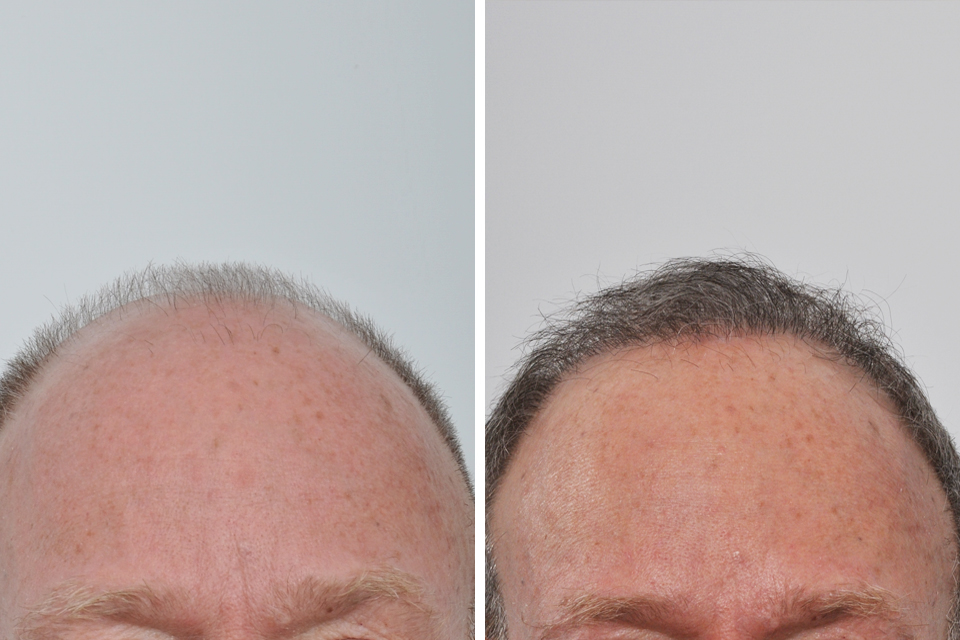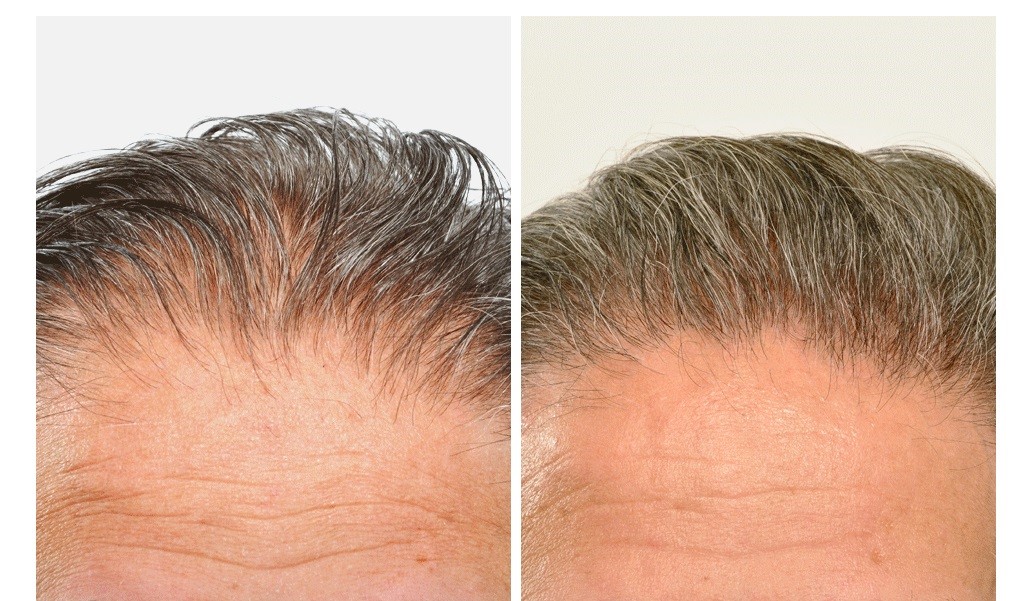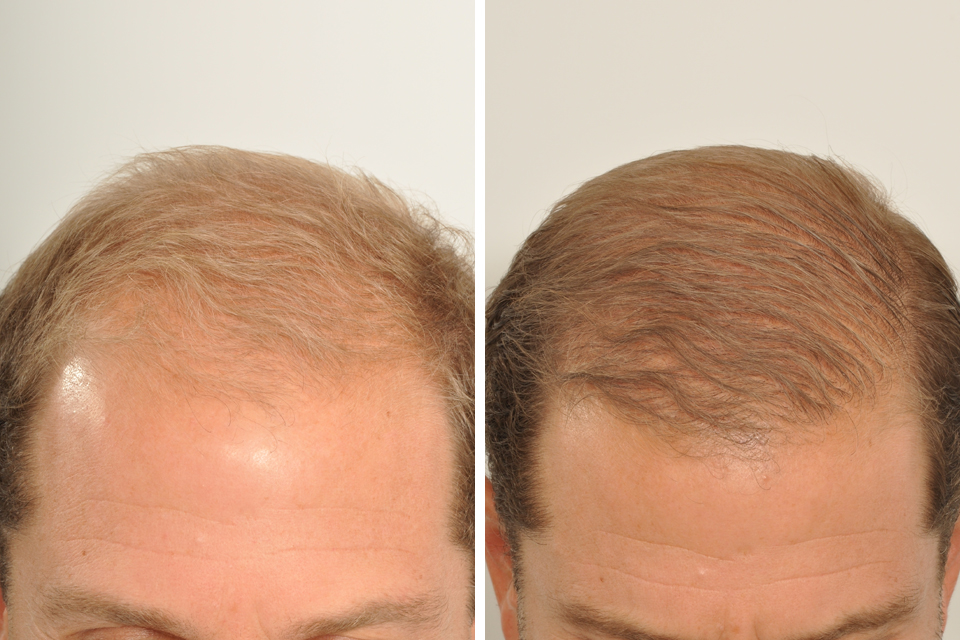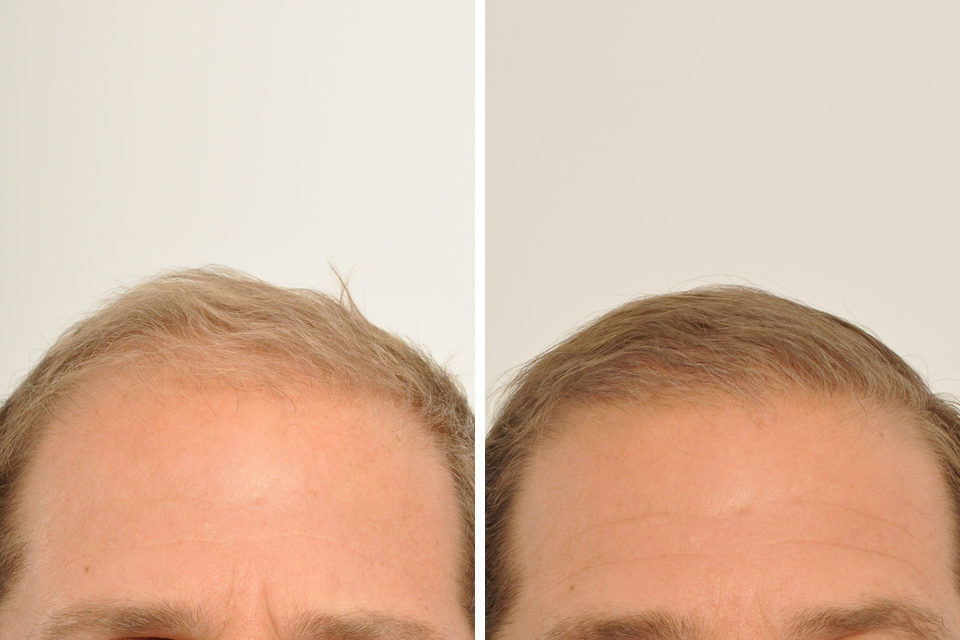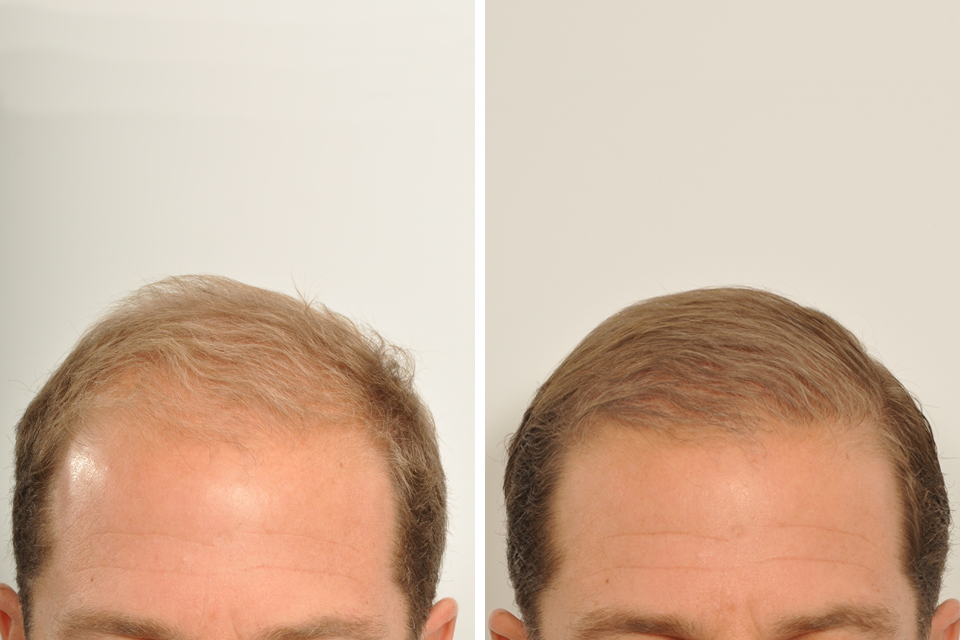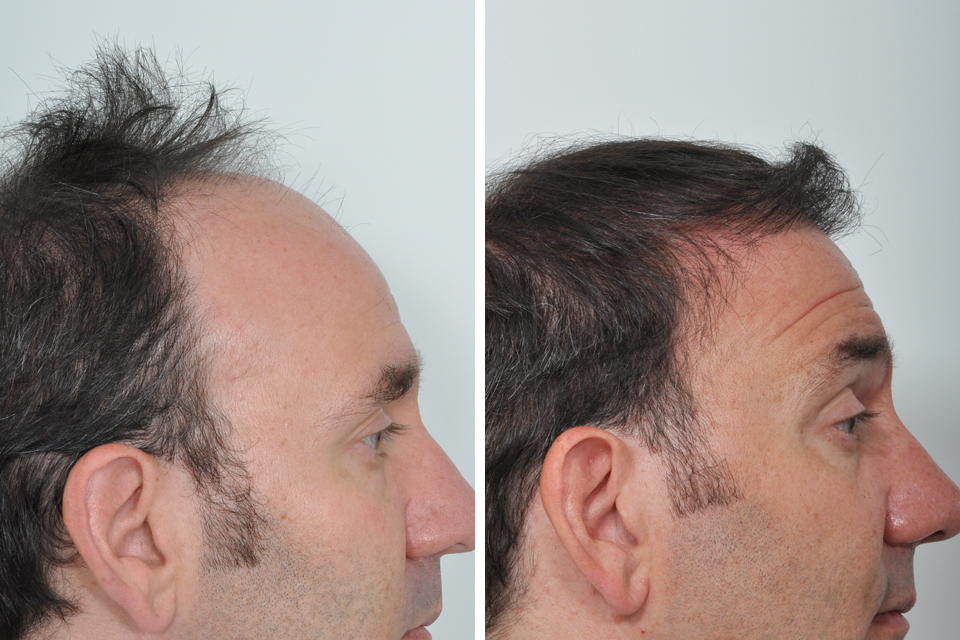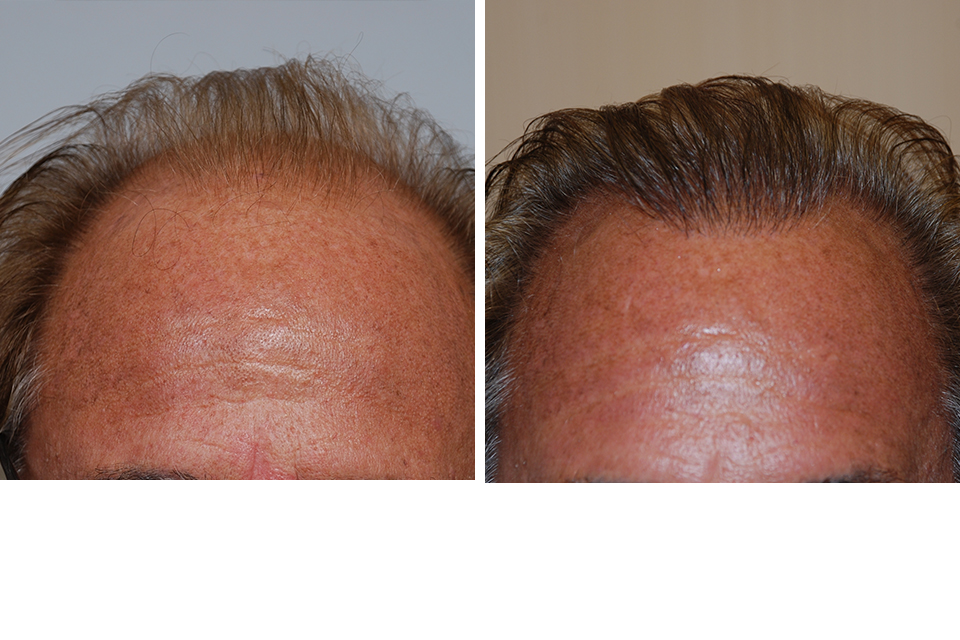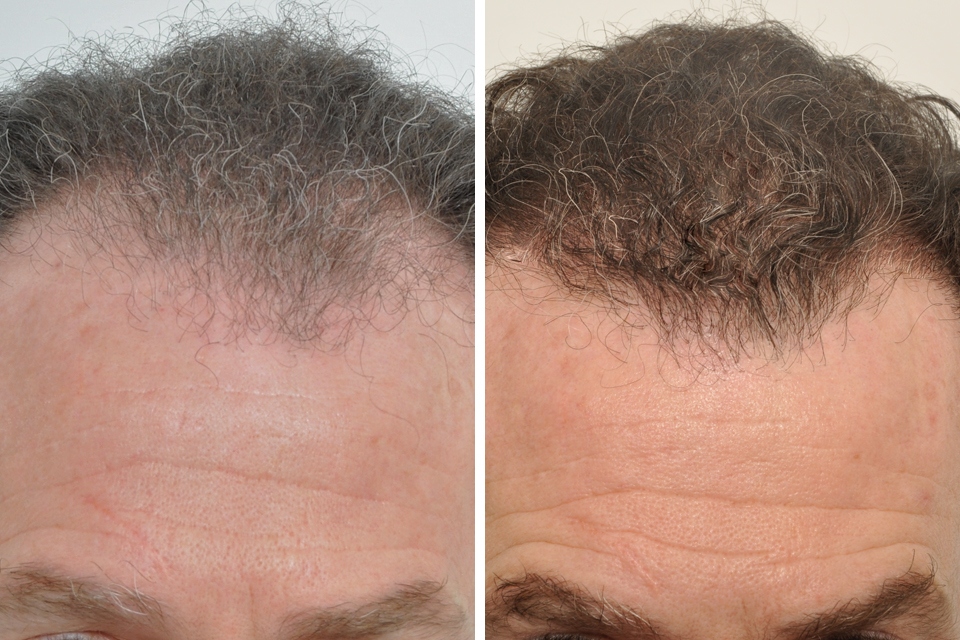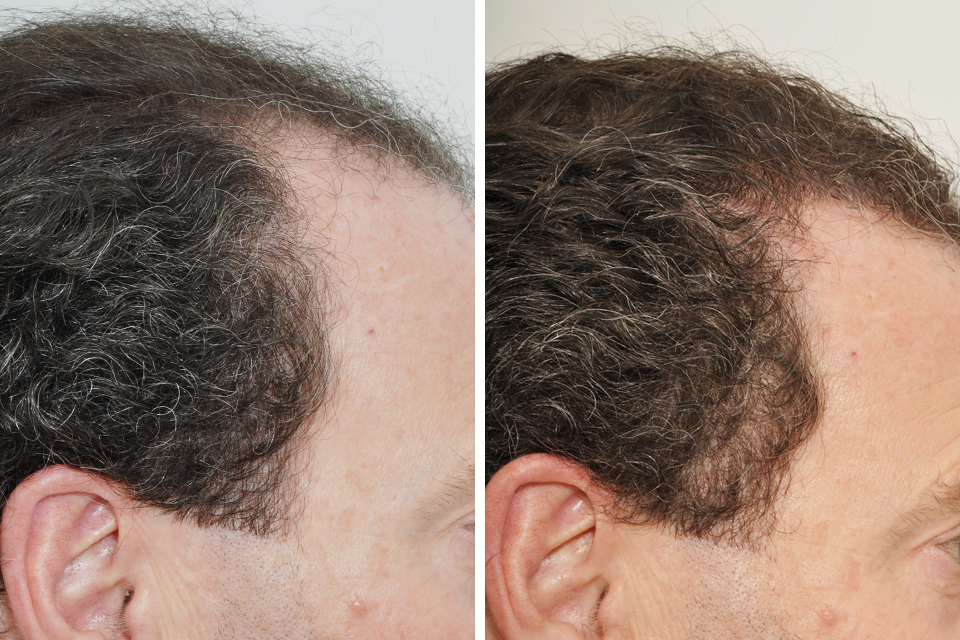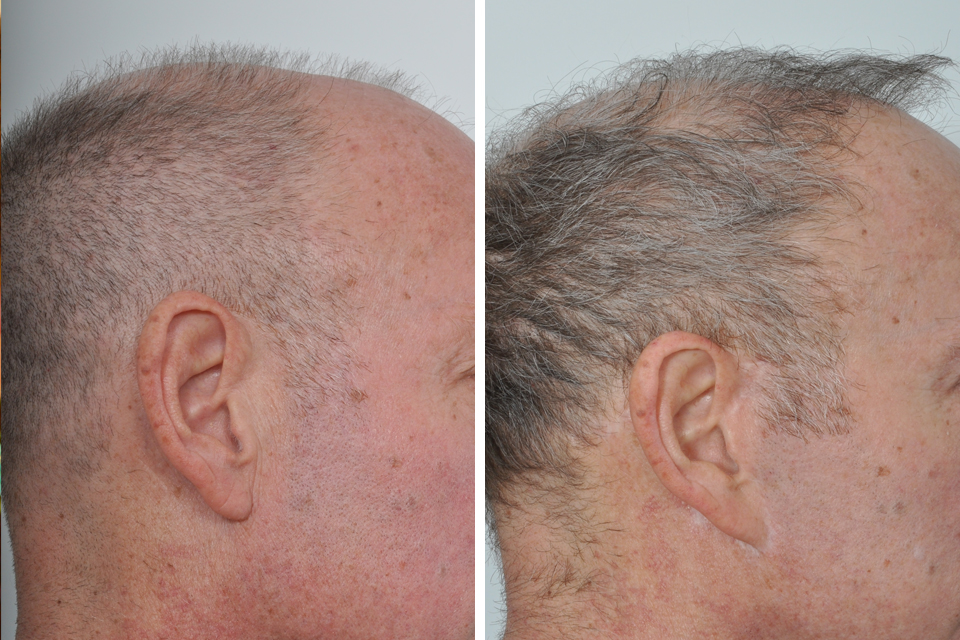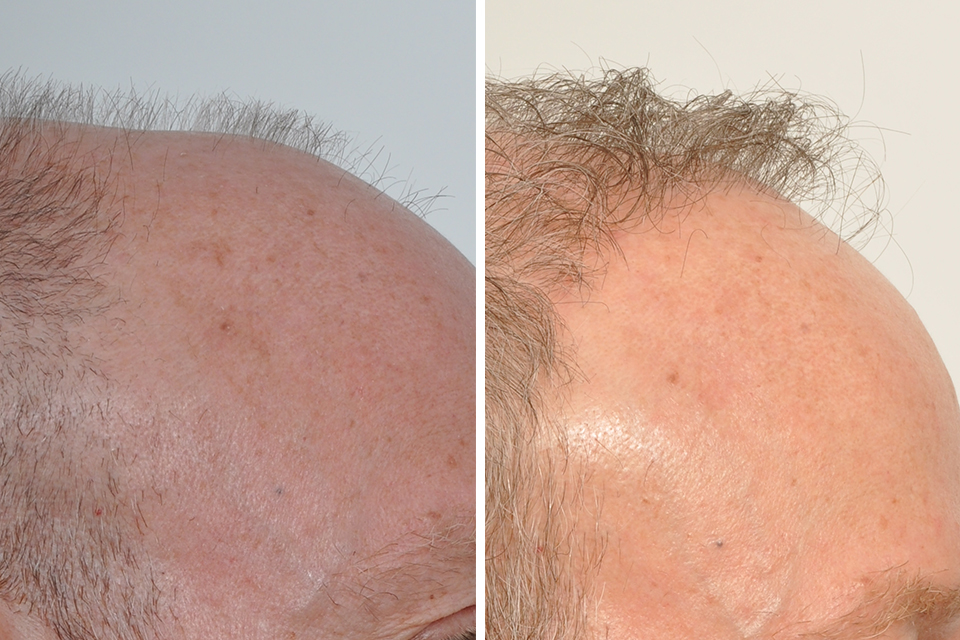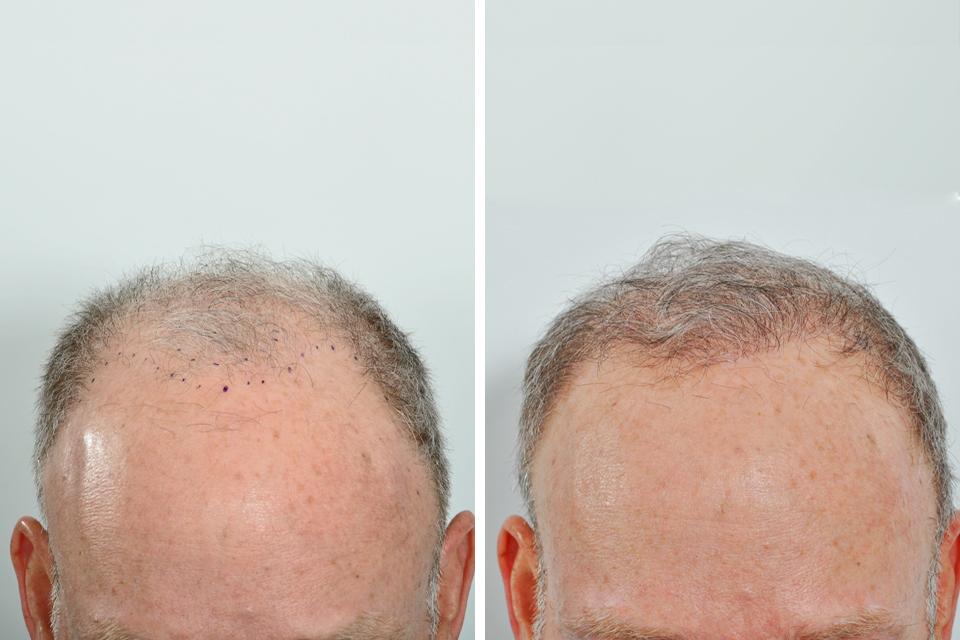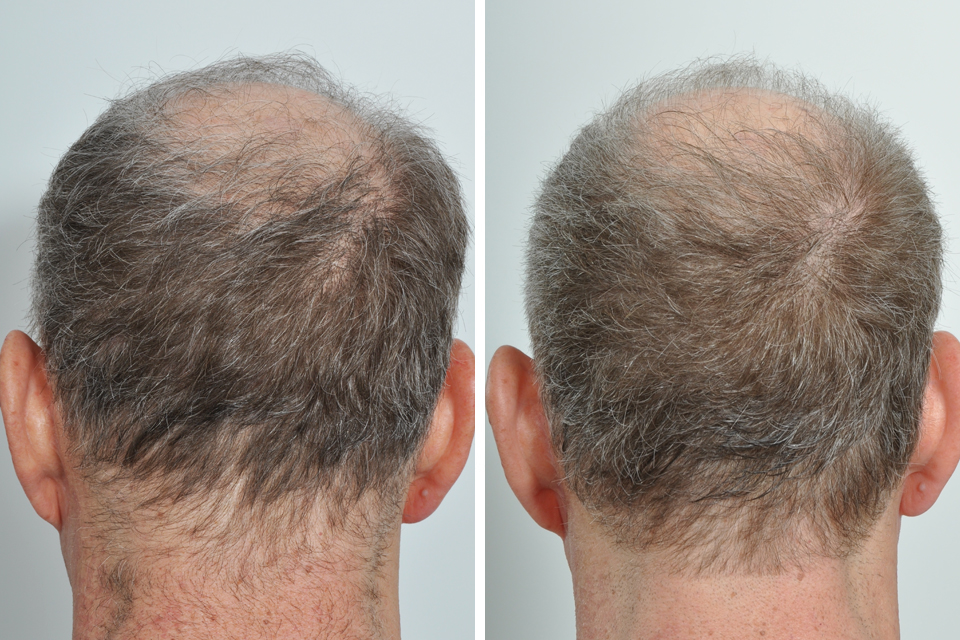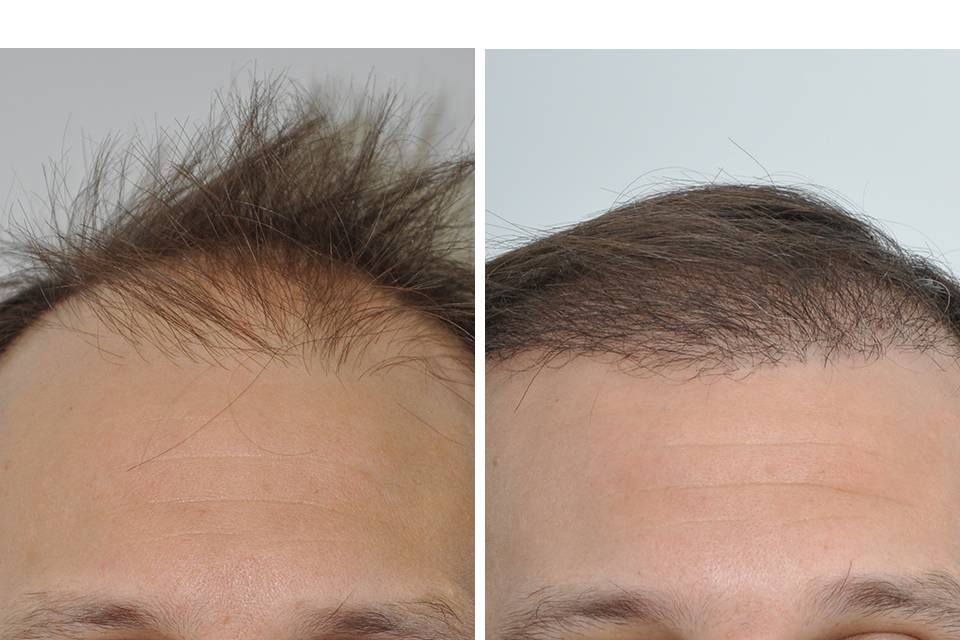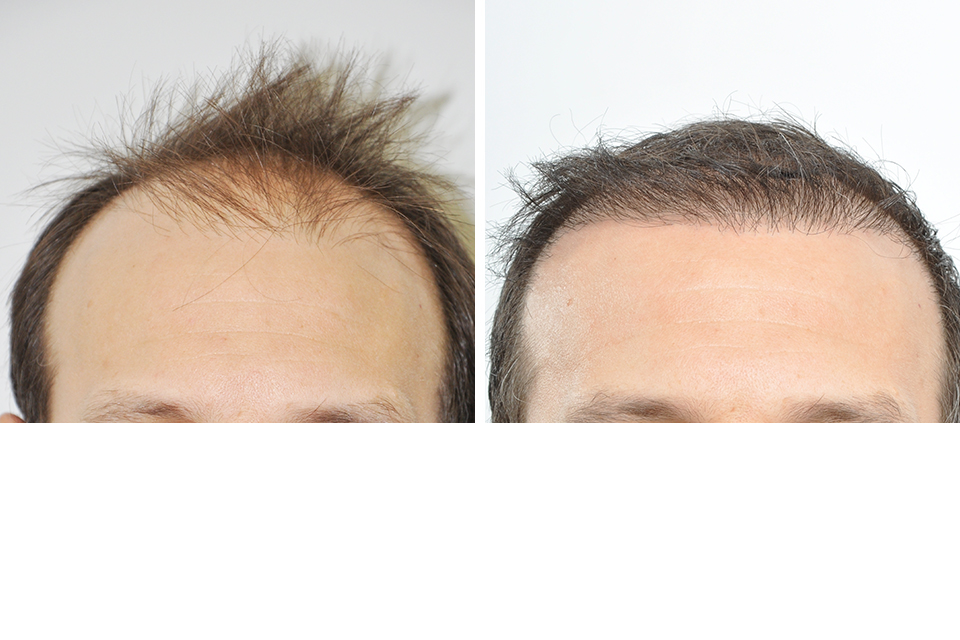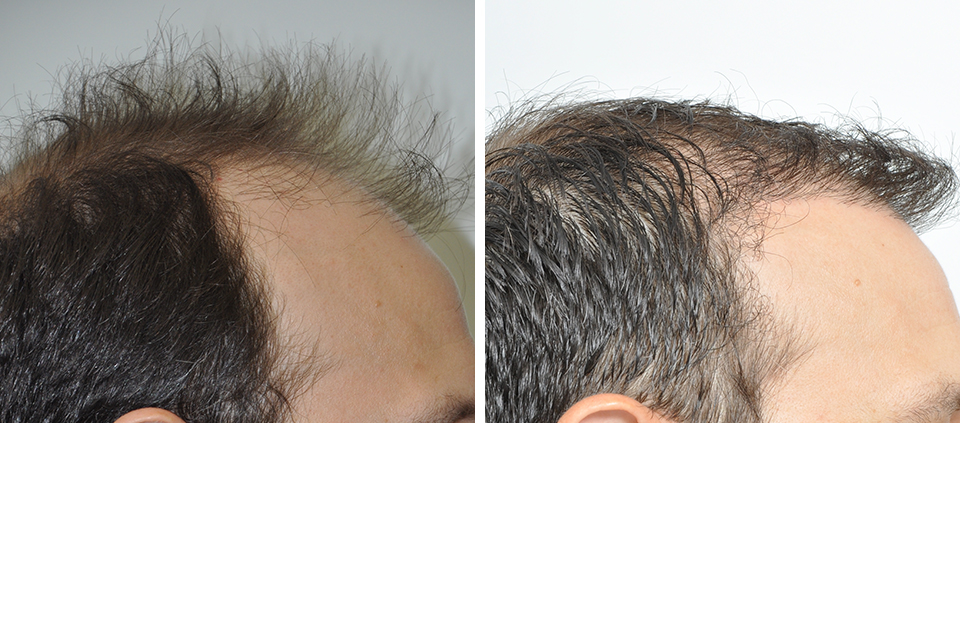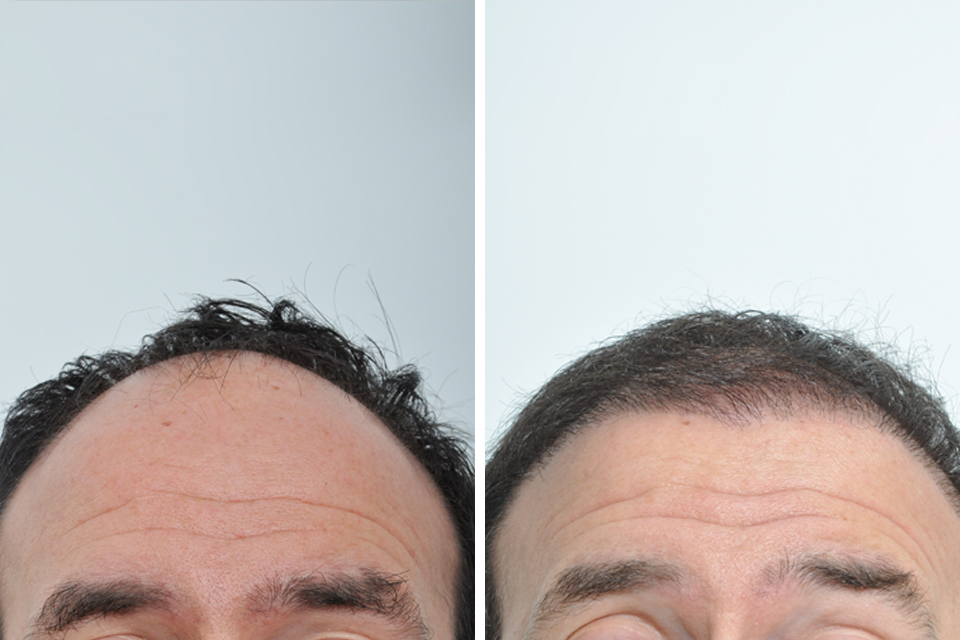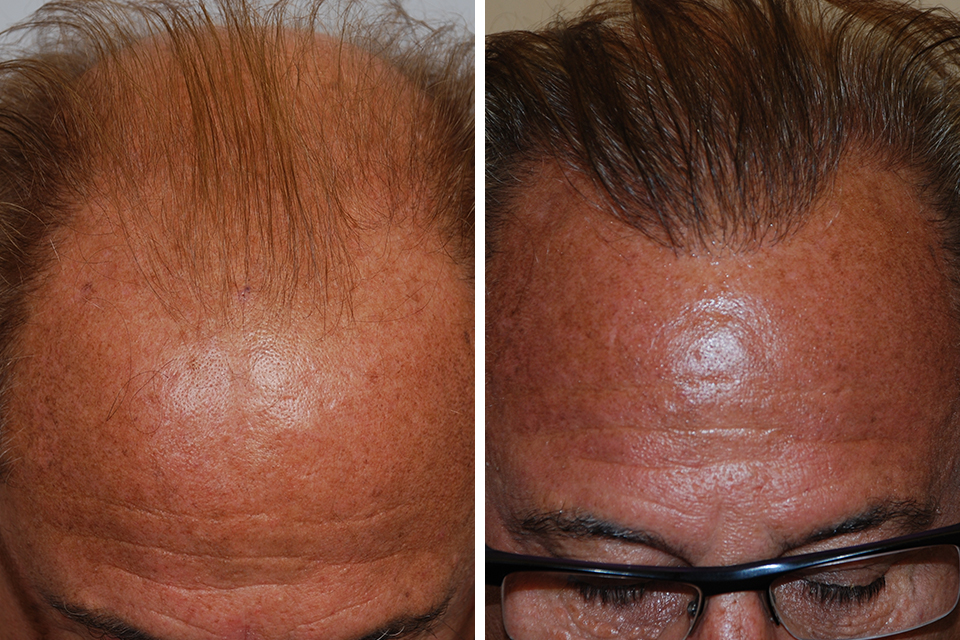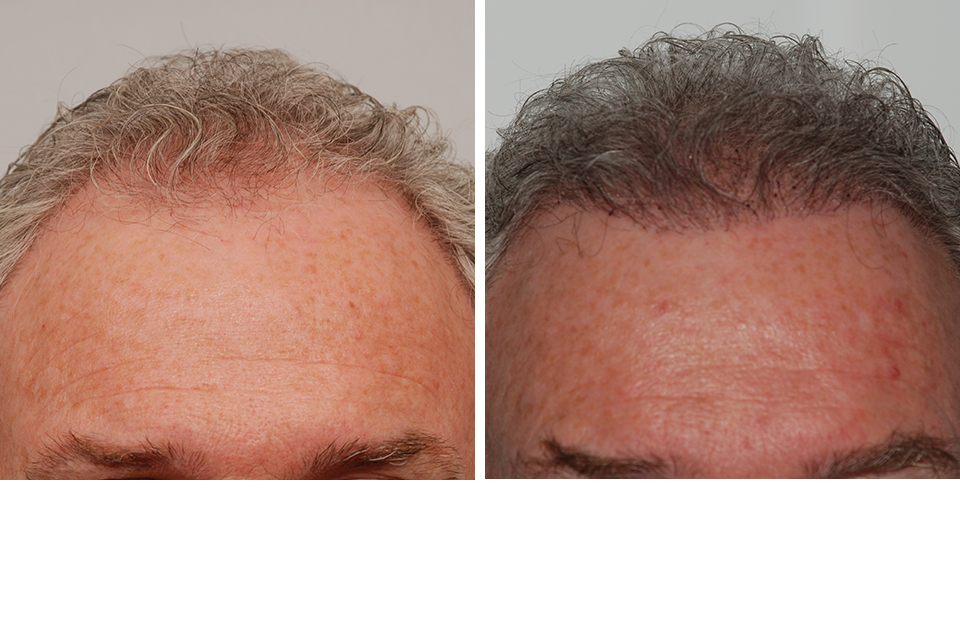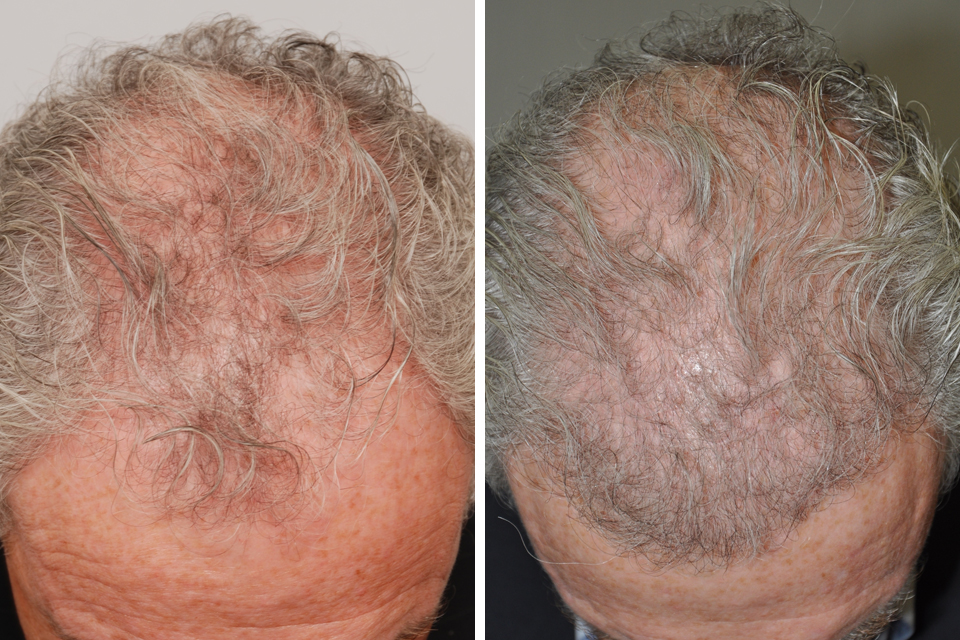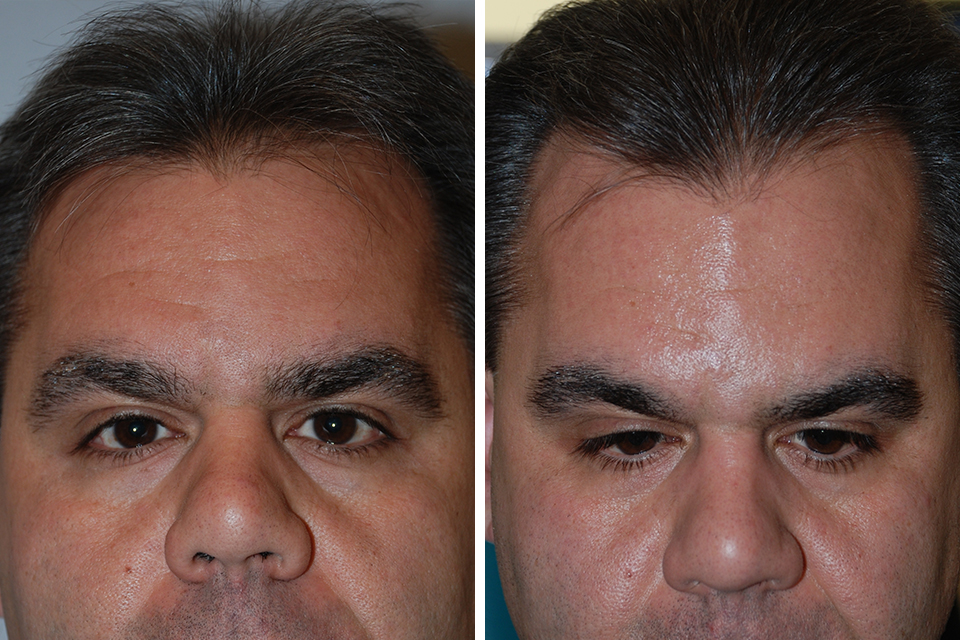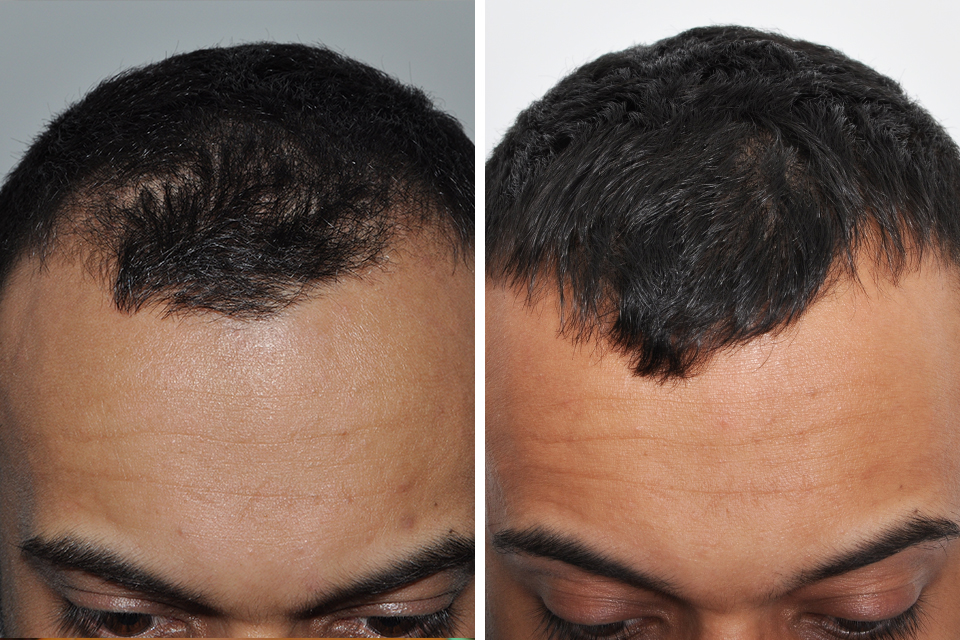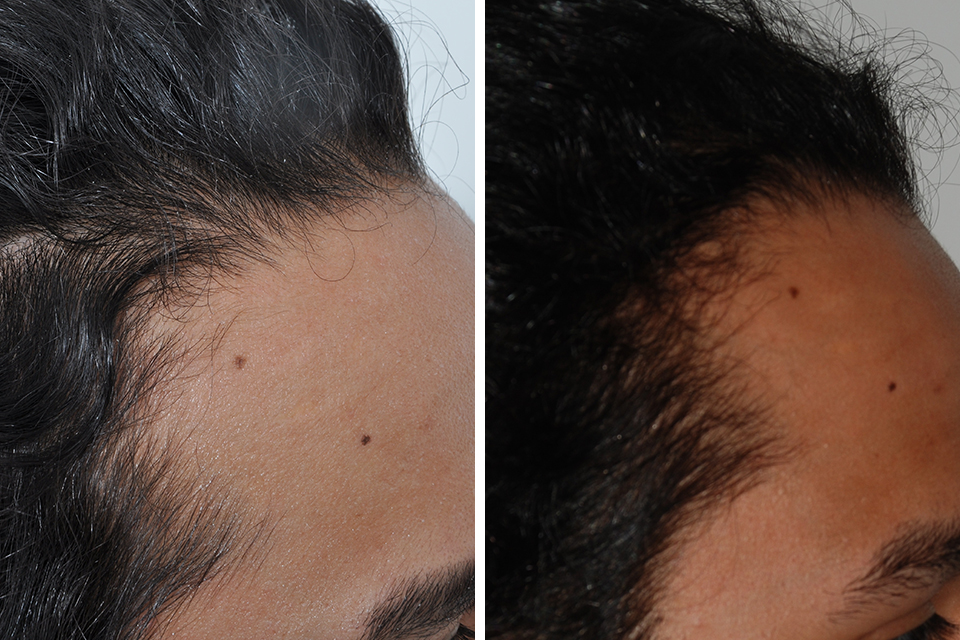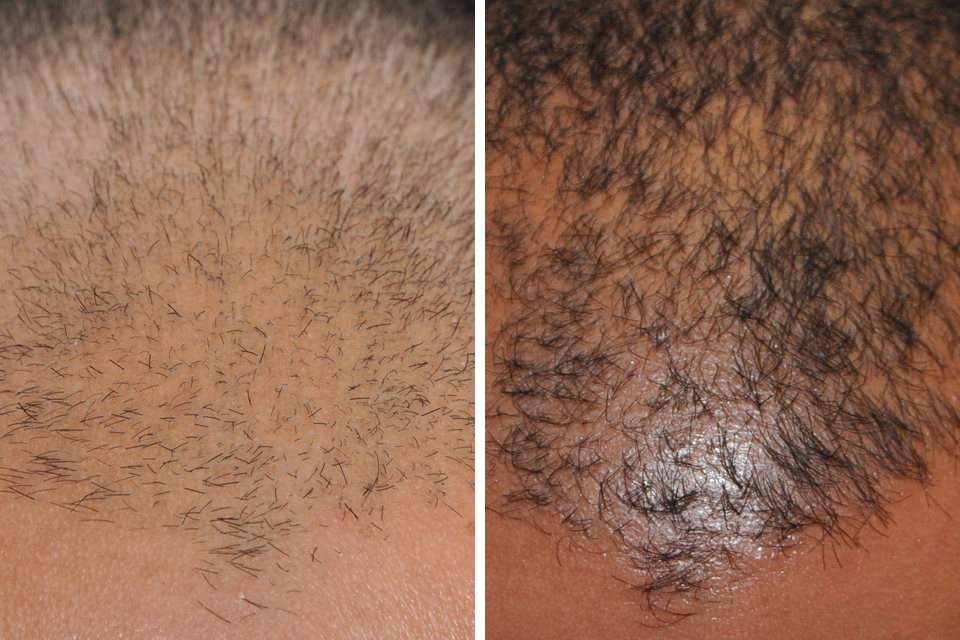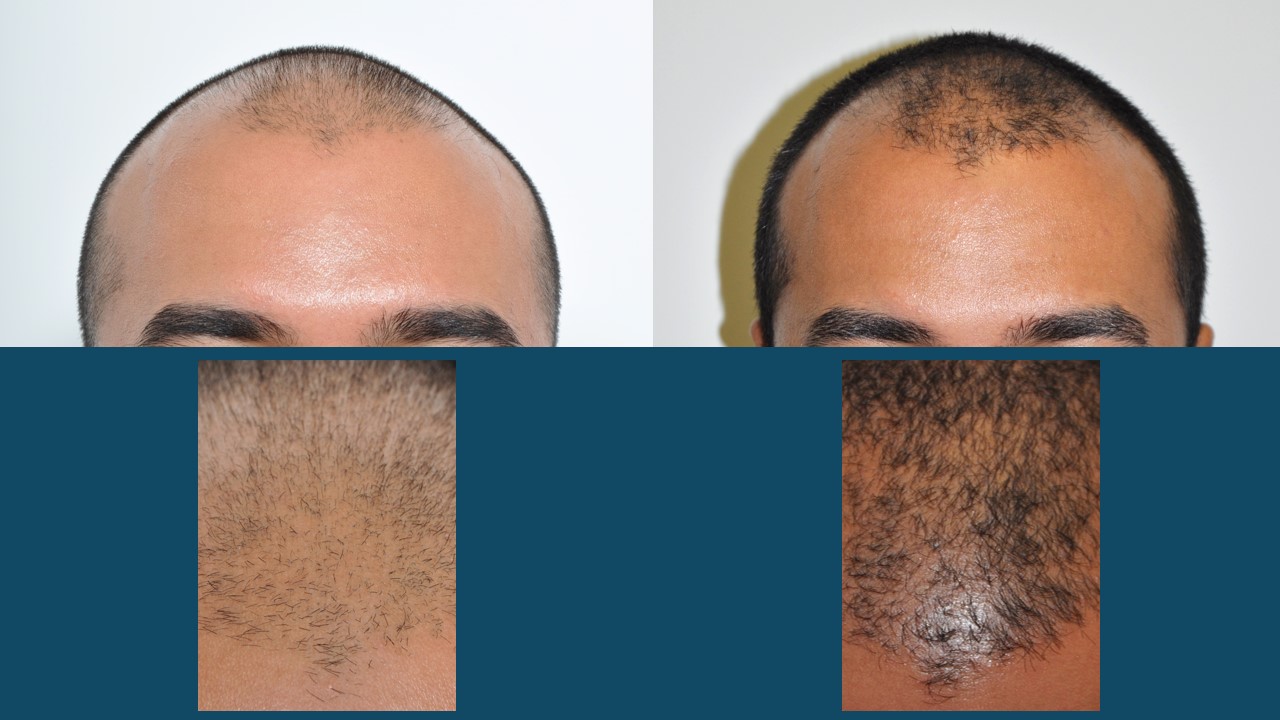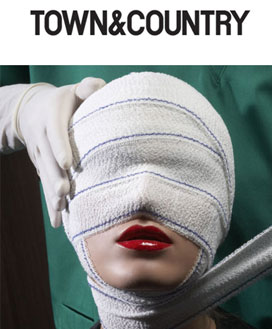Modern Hair Transplantation
Hair transplant surgery has attained new levels of excellence in the past decade. In our practice Dr. Rosenberg embraces these advancements and now emphasizes the importance of maintaining healthy hair density as part of sustaining a beautiful and vibrant face. It is the combination of Dr. Rosenberg’s artistic eye and superb surgical skill that restores thickness and natural appearing hair lines for both our men and women patients. In terms of methodology, Dr. Rosenberg performs Follicular Unit Extraction (FUE) and Follicular Unit Transfer (FUT) techniques for hair restoration. Each approach creates aesthetically beautiful outcomes with the difference being how the donor hair is gathered. With FUE, individual hair follicles are transferred one at a time, from the back of the scalp, where hair is densest, to the frontal area where hair has thinned. The main advantage of this method relates to the “scarless” donor area which allows patients to wear their hair very short without revealing any signs of surgery. Like FUE, the Follicular Unit Transfer (FUT) method collects the hair to be transplanted from the back of the scalp. However, instead of removing one hair at a time, this approach takes a “donor strip” that contains thousands of follicles. Under the microscope each follicle is individually separated from the strip and then transplanted into the area of need. The main advantage of FUT is it allows the transplantation of many thousands of follicles within a single day session which tends to be more than FUE achieves. It is important to realize the choice of technique is individualized to each patient and will be discussed during the initial hair transplant consultation.
On The Day of Hair Transplantation
All of our hair procedures take place in our gorgeous facility called Manhattan Facial Surgical Suites LLC. On the morning of surgery a small amount of long lasting numbing injection is used to anesthetize the scalp, a little Valium is given to relieve anxiety. The experience is so comfortable that most patients watch movies, read books or listen to music during the several hours they spend at the center. If a patient during their initial consultation expresses a wish to undergo the procedure with light sedation, we have our anesthesiologist present for the whole time of the procedure.
After Surgery
At the end of a hair transplant surgery session the patient may return home or for out of town patients to their hotel room. There are no dressings or drains present. On the next day patients bathe and two days after surgery gently wash their hair. For the first week the forehead may appear slightly swollen, the back of the scalp will feel tight and small scabs will sit where the transplants were placed. But these all soon disappear and the patient can then return to normal social, work and physical activities. Dr. Rosenberg likes to describe the growth of transplanted hair like that of “seeds in a garden.” New hair growth takes several months to begin but then becomes rooted and ever more healthy. At twelve weeks most patients begin to notice new hair growth and once 9-12 months have passed the results become thrilling.
Platelet Rich Plasma
Lastly, on this second visit, Platelet Rich Plasma (PRP) injections are typically begun. This approach involves our drawing a small amount of blood from the patient and then centrifuging it with specific medicines to concentrate the growth hormones and anti-inflammatory components of the blood. This “PRP” is then placed into a Dermapen, a device that gently and painlessly injects the liquid into hair loss area of the scalp. This process takes less than one hour, and demands no recovery time. With several PRP treatments and the continued application of prescribed topical treatments many women notice their hair loss stops within a month. Soon after, the treated patient’s hair often begins to grow thicker and denser. It is this “lunchtime” treatment approach that has the most potential to help women patients with hair loss. However, it is also important to know that treating female hair loss is challenging and frustrating. At times, the responses to treatment can be less than hoped for and some patient’s grow disappointed with their outcomes. However, all patient’s coming through our center feel comforted they have done everything possible to improve the health and thickness of their hair. Additionally, many women with hair loss are candidates for hair transplantation, but this does not fall into the “lunchtime” treatment category.
If you wish to know more about Hair Restoration, please schedule a consultation with Dr. Rosenberg. Click here to schedule an appointment.

